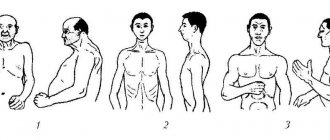Nobility is a personality quality that reflects a combination of a high level of development of such traits as morality, honesty and dedication. The meaning of the word nobility is often used synonymously with chivalry and holiness, emphasizing the uniqueness and value of personal manifestations not only for the person himself, but also for the surrounding society.
Initially, the word was used to characterize a whole set of qualities inherent in a person from a noble family or high origin, and this was due to the fact that people of these classes underwent special training that developed these traits. Such education was necessary for the worthy performance of their chosen service or compliance of actions with a high rank, where nobility was inseparable from the concept of honor. Now noble traits are not determined by gender, because knowledge and upbringing have become accessible, so they can be inherent in a person of any class, which depends on the personal aspirations of maturity, moral choices and internal values, but the connection with the concepts of honor and honesty, faith and devotion remains.
What is nobility?
Nobility is a set of qualities that characterize the moral, ethical and spiritual development of a person, as well as his attitude towards other people and all living beings in general. A noble personality has traits such as honesty, generosity, loyalty, devotion and integrity.
The main feature of nobility is that a person behaves in a certain way absolutely sincerely. He comes to the aid of those in need, is always honest with others, faithful to his loved ones, open and courteous in communication, not because this is expected of him, but because he himself wants to behave this way. Of course, there is nothing wrong with following the rules accepted in society. And yet nobility is determined only by internal motives and motivations.
The word “nobility” is formed from the words “good” and “kind”, which corresponds to its outdated meaning. However, today it is customary for them to characterize the behavior of an individual in relation to others. So in the modern understanding, a noble person is one who creates good for others.
Congenital or acquired?
Nobility is a set of character traits. Contrary to popular belief, nobility can be acquired not only at birth, but also developed independently. Everything will depend on the person’s upbringing, as well as on the environment. It is the people around you who lay the foundation of character. Therefore, parents should pay increased attention to the upbringing of their child, so that later he can apply nobility in life. A child must be taught from childhood to work and to discipline. It is necessary to explain to the child that helping others is not an obligation, but a necessity. It is imperative to instill in your child the concept of what is good and what is bad. And developing good manners will help complete your education. And in order for the process of education of a young pupil to go better, parents should not only talk about what nobility is, but also show its manifestation by their own example.
Examples of nobility
Nobility can manifest itself in different ways, but almost always it implies that a person selflessly performs a good deed, often sacrificing his own interests for this. That is, he does not expect encouragement or gratitude , but simply tries to make the world a better place.
Noble behavior is not only selfless actions. This is also the ability to behave with dignity in society, without taking out anger or resentment on others, without responding to rudeness, and treating all people with respect, regardless of their social status.
Many interesting examples of nobility can be found in fairy tales. For example, Dunno (Nikolai Nosov’s fairy tale “Dunno in the Sunny City”) dreamed of meeting a wizard and did good deeds every day. But this “didn’t count” because his motives were selfish. And yet his wish came true when he forgot about his goal and just helped a stranger, thereby committing a noble act.
Another famous fairy tale about nobility is “Tsvetik-Semitsvetik” by the Soviet writer Valentin Kataev. The main character completely irrationally used the magical power of the flower, spending the first six petals on toys, sweets and other momentary desires that did not bring her joy. But when she had the last petal left, she showed nobility and asked the flower to heal her new friend’s leg so that they could play together.
In real life, nobility is often manifested through charity and patronage. Of course, many celebrities do this for show so that they will be viewed more favorably by society. However, a large number of people engage in charity precisely in order to make the world a better place, without flaunting their activities and without thinking about how it affects their image.
Examples
When it comes to nobility, what comes to mind first? Well, of course, knights and noble ladies. The word “nobility” is associated with men. Why? Previously, this system of qualities was inherent in people with “blue blood”. They performed in tournaments, demonstrating their courage, challenged them to a duel, defending their honor, and won the hearts of ladies by performing feats. Today, examples of nobility are rarer. But this quality is now inherent not only in men, but also in women. The concept itself has become broader. The phrases “noble profession” and “noble deed” can be found in everyday speech. What professions can be called noble? Teachers, doctors and educators are professions that people choose not for the sake of financial well-being. And what actions can be called noble? Those that a person does not for the sake of acquiring some kind of regalia, but in order to help someone. What could it be? For example, providing free assistance to neighbors on the landing or organizing a children's party in an orphanage.
What does nobility consist of?
Nobility cannot be considered one personality quality, since it is a whole complex of qualities, none of which can be excluded. This complex includes such qualities as:
- Kindness. A noble person is equally kind to everyone and never shows cruelty (even towards someone who has committed a bad act and deserves censure).
- Self-sacrifice. A person selflessly spends his time and other resources to help others. At the same time, he never regrets his own expenses and losses, but worries if he could not help another.
- Modesty. Nobility does not allow boasting and arrogance. A person must be extremely sincere, simple, modest and straightforward.
- Responsibility. A noble person is true to his word, therefore he always fulfills his promises and the terms of agreements. And it's not because he's afraid of upsetting anyone. It’s just that he doesn’t even think about the possibility that you can make a promise and not keep it.
- Justice. In the modern world, ideas about justice are greatly distorted. But a noble person understands perfectly well what is fair and what is not. He does not give in to emotions and never judges prejudicially. And if in some situation the one who is closest to him turns out to be wrong, this will not prevent him from perceiving the situation adequately.
- Courage. Sometimes circumstances can be dangerous for those seeking justice. But a noble man is true to his principles and does not abandon them, even if something threatens him.
- Unselfishness. This quality completes the list because it is the most important of all listed. Whatever a person does, in order for his action to be considered noble, he must be absolutely selfless.
From the author of the project
Nobility... How much is said in this word, but even more is meant by this word the positive spiritual qualities of a person that resist such a plague as indifference, selfishness and pride. Paisiy Svyatogorets talks a lot about nobility in his works, gives many examples from his own life and the lives of other people who deserve attention. Studying his biography, one can characterize Paisius the Svyatogorets precisely from the noble side, and, frankly, it is the quality of nobility with which his works are imbued that gives impetus to the study of each subsequent volume of his legacy
Paisius the Svyatogorets, in addition to generally accepted virtues, dwelled a lot on Divine justice and nobility.
And again I give the reader the opportunity to independently enjoy excerpts from his works, here nothing is needed for understanding, the reader himself drowns in the depth of what was said and presented by Paisius the Svyatogorets.
How to develop nobility in yourself?
Every person, regardless of origin and other characteristics, can develop and develop nobility. The main thing is to correctly understand what it is and what personality traits it implies. Of course, you will have to put in a lot of effort. But the result is worth it, because the nobility in a person is felt, and very soon you will notice how the attitude of others towards you changes.
Here are some simple principles to get you started:
- Refusal to judge. Every person has the right to self-realization, as well as the right to take responsibility for their own mistakes. However, people love to judge others for everything that they don’t like: appearance, behavior, interests, tastes in music, choice of partner, etc. Nobility implies an equally tolerant attitude towards all people, no matter what they look like or what they do.
- Responsibility for your own words. It is necessary to fulfill every promise made and do it on time. Many people do not attach due importance to this principle, believing that circumstances justify them. However, even minor optionality leads to irresponsibility in more serious matters, so it is necessary to completely exclude situations in which even minor promises are not kept.
- Deliberate promises. Often the reason for broken promises is that a person promises more than he is able to deliver. Situations vary, but most often people are simply afraid of upsetting the person to whom they make a promise, and they say what they think he wants to hear. Therefore, it is important to learn to take your words responsibly already at the promise stage.
- Selfless help to others. The ability to sacrifice one’s time and effort in order to completely disinterestedly help another person (often a stranger) is the most important component of nobility. By purposefully accustoming yourself to this, over time you can learn to help others completely at ease.
- Empathy. You don't have to be highly empathetic to empathize with others. Indeed, many people try not to think about the suffering of others, but this does not make them callous individuals or sociopaths. This is simply a defensive reaction of the psyche that helps to avoid emotional discomfort. In order to become a noble person, you need to allow yourself to empathize with those who are in a difficult situation and, if possible, help them.
- Honesty. Nobility implies absolute honesty. In fact, there is nothing difficult about always telling the truth. It is enough just not to create conditions in which you would have to lie. At the same time, you need to be honest with absolutely everyone, both with loved ones and with complete strangers.
Characteristics of a noble person
Noble man:
1. Friendly. He is not cruel to others. Even if he was offended, he will put the person in his place without insulting him.
2. Humble. He maintains his sincerity, straightforwardness and does not boast of good deeds. He does good because he cannot do otherwise.
3. Responsible. Keeps promises made to others and to oneself.
4. Fair. He looks at the situation openly, even when his loved one is wrong.
Feminine attractiveness
One of the issues that worries women the most these days is “what I look like.” Strong preoccupation with one's appearance can develop into a disease - dysmorphophobia.
For every woman, it is important how she looks and how much she attracts the attention of men. Trying to improve their body, women: perform plastic surgery on themselves, go on a starvation diet, and work out on exercise machines until they go crazy. If you had money, the latest advances in medicine in the field of surgery would be at your disposal
Co..
If you had money, the latest advances in medicine in the field of surgery would be at your disposal. Co...
Several interesting essays
- Essay What is a moral choice reasoning Grade 9 15.3 OGE
Choice is always difficult. You never know what is better to give preference to, what consequences this or that option will have, in which direction it is better to tip the scales. - Essay based on the painting by Petrov-Vodkin Morning still life, grade 6 (description)
- Review of the book Fahrenheit 451 (Bradbury)
Nowadays the theme of dystopias is in vogue. New books are constantly being written, films are being made. And people go to the cinemas to watch the next “Jays”, where they always show the cruel world of the future - Essay My favorite character in the poem The Lay of Igor’s Campaign
After reading the book “The Lay of Igor’s Campaign,” I experienced love and compassion for the main character of the work. Ruler Igor is a sensual person who dreamed of the best share for his own native land. - Pechorin and Ondine in the novel A Hero of Our Time (relationships and comparative characteristics) essay
In the novel “Heroes of Our Time” in the chapter “Taman”, the main character Pechorin meets a strange girl. Pechorin is completely fascinated by the beauty. The secretive girl is a miracle, how beautiful - her flexible figure and grace captivated the loving Pechorin









